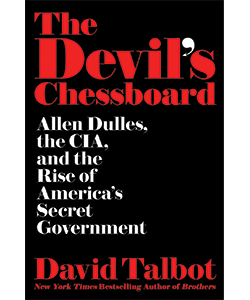"It is the power of the mind to be unconquerable." Seneca
Seems like an easy premise more than 2,000 years ago when the stoic philosopher said it.
But in 2022— when disruption, noise overload, and burnout are the modern plagues— it's not so easy.
How can you armor your mind?
These 9 principles will help you master mental resilience:
1- Reset the GPS
Happiness is a byproduct.
You have to let it happen and avoid the fixation with euphoria.
It's not an infinite supply of sunshine & rainbows.
Do the right things, and you'll get the result...
But it should never be your North Star.
This is a futile pursuit and, often, the root of discontent.
Shift your effort toward the actions that lead to fulfillment.
Science has proved that life satisfaction trumps happiness.
Accomplish worthwhile things—happiness will follow.
2- Use fear as a compass
"What we fear doing most is usually what we most need to do." Ralph W. Emerson
We're programmed with a negativity bias.
In every situation, our response is to imagine the worst-case scenario.
Change your outlook by reframing fear.
It's not pain...
It's possibilities.
Disruption never comes without opportunities.
Instead of dwelling in the pits of despair, understand that fear is a compass pointing you in the right direction.
Whenever you face trepidation...
Don't ask: what if I fail?
Ask: How can I find the potential?
3- Put on your running shoes
"Life is never made unbearable by circumstances but only by lack of meaning and purpose." Viktor Frankl
I'm not going to get all existential and ask you to find the meaning of life.
Too complex...
I have an easier approach.
Progress is purpose.
Stagnation is decay. It corrupts the mind.
But when you're too busy designing your life, the outside noise ceases to disturb you.
Inertia is your mind's deadliest opponent.
So...put on those running shoes...
Your goal— getting better. Keep moving.
4- Avoid the mob
"We should not, like sheep, follow the herd of creatures in front of us, making our way where others go, not where we ought to go." Seneca
The majority of people choose the path of least resistant.
That's why outliers are > 5% of the population.
Simply put...
Following the crowd makes you settle.
You become what you give attention to.
And when everyone around you is content with the absolute minima, your range of choices shrinks.
Numbers lead to mental slavery.
Ordinary people chase validation. Extraordinary people chase goals.
5- Press Pause
"Between stimulus and response, there is a space. In that space is our power to choose our response. In our response lies our growth and freedom." Viktor Frankl
Impulse is a cruel master.
Precipitation almost always yields poor choices.
Counteract it by...
Following the 4 Ps:
- Pause
- Process
- Plan
- Proceed
The gap between stimulus and response harbors our emotional intelligence.
After being triggered...
Pause.
Then practice affect labeling— putting feelings into words.
Labeling produces explicit emotional regulation.
6- Trim off the fat
"He has the most who is content with the least." Diogenes
A good life is not a result of adding but subtracting.
It's needing less to feel fulfilled.
Stop anchoring your level of satisfaction to the next milestone or price.
Contenment breeds freedom.
7- Change the scale
"Be tolerant with others and strict with yourself." Marcus Aurelius
Every person we encounter is an opportunity for kindness.
Most of the ailments of the world reside in judgement.
Never use a scale to weight the character of others against your own...
You have a narrow focus from your vantage point.
We want people to act like we would...
Think like we would...
That's a self-destructive mindset.
People can only use the resources they have.
The filters that allow every person to process information are their experiences.
8- Mute the thunderstorm
"Complaining does not work as a strategy. We all have finite time and energy. Any time we spend whining is unlikely to help us achieve our goals. It won't make us happier." Randy Pausch
Objecting to life's circumstances won't change them.
You see....
Complaining is the oxygen that feeds the tumor of misery.
It devours all the good you should be thankful for.
Want an invincible mindset?
Replace blame with gratitude.
9- Stick to your lane
"There is only one way to happiness and that is to stop worrying about things that are beyond the power of our will." Epictetus
Most people conduct their lives like a greek tragedy...
Always searching for an omen that explains their ill fortune...
When the answer is simple...
No such thing as bad luck.
It's just the foolish compulsion of trying to exert control over circumstances outside our power.
"In any situation in life, you only have 3 options... You can change it, you can accept it, or you can leave it."
@naval
@naval Your mind can be a doorway, or it can be a prison...
The good news is that you have power over it.
Any emotional domain you enter— you do so by choice.
Take consistent action to implement these principles.
It'll help you to change your story by forging an unconquerable mind.
@naval TL;DR
1- Reset the GPS
2- Use fear as a compass
3- Put on your running shoes
4- Avoid the mob
5- Press pause
6- Trim off the fat
7- Change the scale
8- Mute the thunderstorm
9- Stick to your lane
Glad you made it!
Thanks for sticking with me.
If you enjoyed this thread:
1) RT the first tweet to help others find it (linked below 👇)
2) Follow me:
@DanesaGlez I write about marketing, copywriting, and creativity.
https://t.co/YKmedcfRgp



